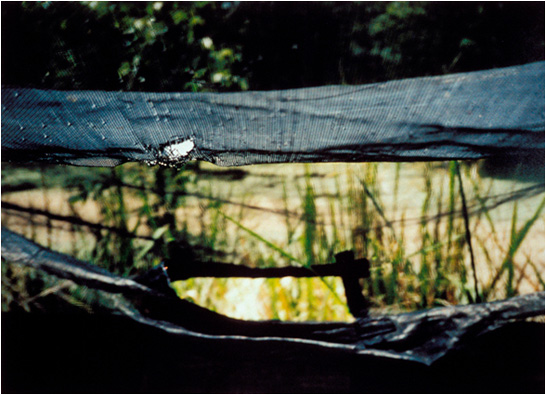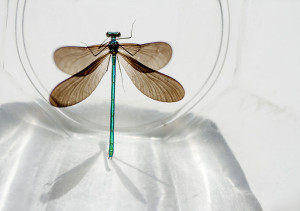
Santee Canal Park, SC #6 by Karen Bell
A van from rehab that looks like it belongs to a psych ward takes us to our first outside meeting. Most of us are drugged up on Ativan and Librium to detox and probably look like psych ward patients—drooling and dazed. We get to an old white church with high steps and get out of the van and smoke cigarettes. The general consensus of everyone is that there is no God and we hate him.
We all walk to where the meeting is and see a square shape of tables set up with almost every seat full. I sit down at an empty seat and stare at the people across from me. They don’t look like any of us. The guy directly across is wearing a blue pin-striped blazer with a silk white shirt and black creased slacks. The girl next to him has on a black business suit with a purple blouse and black high heels. I’m wearing sweat pants with sandals and a hooded sweatshirt that says Bong on it. The girl sitting next to me is wearing pajama pants and a hooded sweatshirt. Everyone looks at us like we’re retarded 10-year-olds.
The meeting starts and I get up to get some coffee. Someone begins reading the Twelve Steps. I sit back down and they finish the readings then some guy in a suit and black spikey hair stands up front to tell us his story. He says his name is Dan and that he’s an alcoholic, he starts talking about his childhood. I guess his father used to beat him and he was poor all his life. He has spent years in prison for robbing a store high on methamphetamines. Dan lived on the streets and says he was a prostitute having sex with men to get high. Listening to Dan gives me gratitude I did not know I had.
After he’s done sharing, everyone claps and they pass around a basket for money but no one from rehab has any. The other people pull out their wallets and wads of money. Part of me wants to grab someone’s and take off to get high but I don’t. At least I know these people have money again, and I’m guessing they didn’t when they first came in, which gives me hope that someday I will too.
A blonde girl shares next. She has tan skin with perfect mascara and red lipstick. She’s wearing a tight black tank top and says her name is Carrie. Carrie talks about being addicted to cocaine and not being able to stop and wanting to commit suicide. Every morning she would say she wasn’t going to do coke the next day but by that night she did and hated herself for it. I can relate to this.
In the end Carrie didn’t have money and had to have sex with dealers just to get high. Her family disowned her and she spent a year in prison on a drug charge. This girl looks like a head cheerleader from a Midwest high school, but her past makes her ugly. I can relate to this too.
An older guy who looks like a roughed-up Jack Nicholson shares next and tells us he has done so much damage to his body that he has cirrhosis of the liver and Hepatitis C. The doctors tell him if he drinks again he is going to die, but they won’t put him on the liver transplant list because he hasn’t been sober for a year. He can never seem to make it, always relapsing before the year is up. Dan says his life is on the line and he can’t stop drinking and he is powerless over alcohol and everything is unmanageable.
The next guy stands up and says his name is Gus and that he’s an alcoholic. He looks at each one of us from the rehab and tells us how his life has gotten better. He used to eat out of garbage cans and sleep on the street, but now he has a job and an apartment and his family back. Alcohol consumed him, and since he went to rehab and cleaned up he has been sober for years and is a productive member of society. He points at all of us and says we can do it too and to keep coming back and life gets better.
Hearing that these people’s lives were worse than mine and they’ve gotten them back gives me hope. I see that they have money and are happy and that’s exactly what I need because right now I want to die and I don’t know how I am ever going to live without drugs and alcohol. I don’t know how I’m going to deal with all the problems I have caused myself over the years and all the people I have hurt. I don’t know how I’m going to make money to eat and I don’t know where I am going to live. I am scared and these people have just given me enough strength to get through the day.
After a moment of silence I blurt out, “I’m Toby, and I’m an alcoholic. I just want to thank you all for telling your story. I’m scared as shit, and I don’t know what I’m going to do.”
I pause and take a sip of coffee. “I related to all of you, and I see that you guys are getting your lives back and it gives me hope that I can too.”
Take another sip of coffee. “I have been trying to stop doing coke for years and I can’t. I really related to your story.” I point to Carrie. “Every morning I tell myself I’m not going to do coke but every night I do it again and hate myself the whole time I’m high. I haven’t lived on the streets,” I point to Gus, “but that’s where I’m headed if I don’t stop because I have no money and no one to help me.”
I look back at the group. “Hearing that you guys have gotten your life back from doing the Twelve Steps gives me hope that I can too. Thank you,” I say.
I sit back down in my chair and drink the rest of the coffee in my cup nervously, not knowing what else to do with myself.
The other people from rehab start sharing just like I did. Telling the others how their stories helped them and that they are really depressed and don’t know what they’re going to do. They say all they want is to drink and hearing the stories makes them know things will get better. The meeting ends and we stand in a circle and hold hands and say the Serenity Prayer.
After the meeting guys come up to me and write down their numbers, telling me to call them. Some ask if I have a sponsor which is a person who takes you through the Twelve Steps. I tell them no, and people offer to sponsor me but I’m too scared to accept.
I go outside and smoke a cigarette really fast, totally overwhelmed from what just happened. We all load back into the psych ward van and head to the rehab with just enough hope to last us until we wake up the next morning.
Toby Van Bryce attends the University of San Francisco’s MFA Creative Writing Program. His work has appeared in Knock Magazine.

